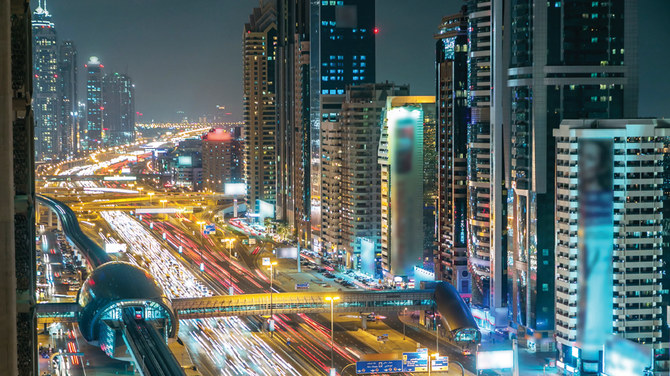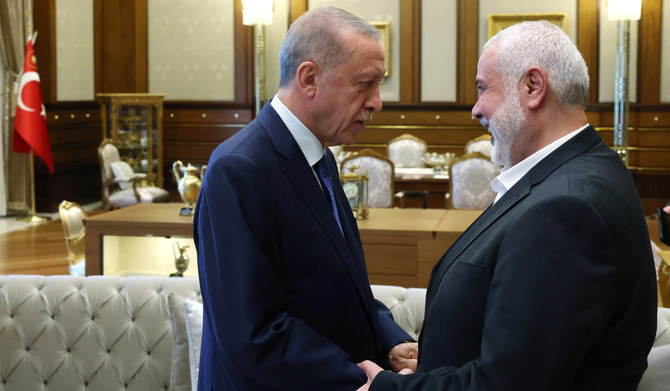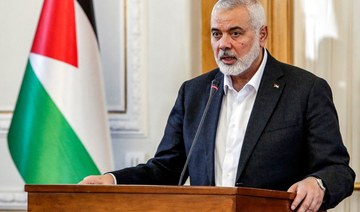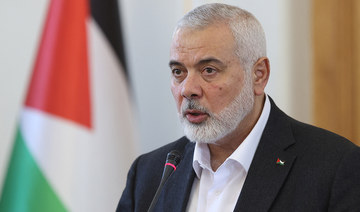ABU DHABI: In recent years, Gulf Cooperation Council (GCC) member countries have been trying to build robust entrepreneurship ecosystems as part of a common drive to diversify their economies away from hydrocarbons.
In practical terms, this means putting in place venture-friendly markets, friendly policies, funding vehicles, a stimulating culture and a range of support mechanisms.
But creating such an ecosystem is a complex process requiring careful planning and patience. Without universities, corporations, risk capitals and entrepreneurs to act as stakeholders, big ambitions will stay just that.
The success of each country will be measured by the creation and growth of startups and small and medium-sized enterprises in the coming years.
The Saudi government in 2016 released Vision 2030, a comprehensive plan for long-term economic growth that aims to move the Kingdom away from state-led growth toward more open market policies.
The objective is to foster entrepreneurship and allow the private sector to play a leading role in economic development and job creation.
The results so far of the efforts of Saudi Arabia and its neighbors were among the topics of discussion at the recent SALT Conference in Abu Dhabi.
“What I’ve witnessed in the past few months is significant,” said Abdulrahman Tarabzouni, CEO and managing director of Saudi Technology Ventures.
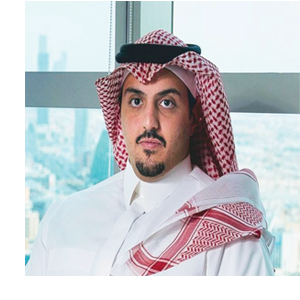
Abdulrahman Tarabzouni. (Supplied)
“You have societal, economic and regulatory changes. The pace and volume of what’s going on in the country is exhilarating.”
Although the changes being introduced across Saudi Arabia have been welcomed by entrepreneurs, they come with their own challenges.
Tarabzouni said that one has to constantly change and be dynamic enough to embrace and keep up with changes.
“That’s where it becomes interesting because you have the new economy, and a lot of these entrepreneurs are well positioned to take advantage of many of these changes,” he added.
“Capital is coming in, foreign direct investment is steadily increasing, and a lot of large institutions and corporates are putting money to work in Saudi Arabia, even though venture investment was previously considered a risky asset class.”
Tarabzouni said while talent is starting to come in, attracting and integrating them within the ecosystem is still a challenge.
He singled out Saudi Arabia for praise for its recent decision to open and pave the way for naturalization of top talent in different fields from all over the world.
“This is significant,” he said. “This is a country that’s literally telling the world, ‘I’m here, and I want to open up to anyone who’s going to be part of my transformation story and be a part of my platform’.”
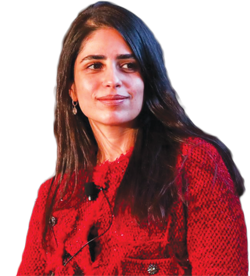
Areije Alshakar. (Supplied)
Besides Saudi Arabia, Bahrain is one of the options people can look at, said Areije Alshakar, director and fund manager at Alwaha Venture Capital Fund of Funds in Bahrain.
“Each country in the GCC offers great opportunities for funds and startups. Bahrain has the right amount of population, the right size and the ability to access decision-makers,” she told the SALT Conference.
“We operate like a team so, ultimately, if you’re a startup looking to penetrate the region, Bahrain is a good testbed to expand in other markets as well because it has a good ecosystem.”
Oman is also emerging at the top of the list, said Abdullah Al-Shaksy, co-founder and CEO of Phaze Ventures, which specializes in energy disruption and logistics.
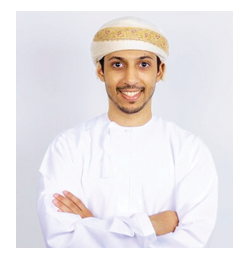
Abdullah Al-Shaksy. (Supplied)
He added that the sultanate is going through a major transformation, similar to the one underway in Saudi Arabia, despite being a smaller market that does not get as much coverage.
“We have a very young demographic and a lot of educated young talent. And for the first time, that talent is now moving away from the state sector and into the entrepreneurship sphere,” he said.
“We finally have all the basic building blocks of the ecosystem, our accelerator programs and three venture funds, (which will be) almost four next year.”
Al-Shaksy said that the Oman developments happened in the last three years, in tandem with regulatory reforms and increased corporate interest and participation in ventures and technology investments.
“That has all come together to make Oman a bit of a dark horse in the race,” he said. “We’ve done four deals in Oman. All four are companies that operationalized in the last two years, and their average annual revenues are $10 million. All four companies are now expanding outside, and one of them acquired a company in Kuwait.”
Al-Shaksy said that the transformations have a lot to do with the talents that had hitherto remained untapped because they used to be drawn toward the government sector, but are now empowered to create their own opportunities.
Overall, the GCC region holds a lot of promise and is currently undervalued, underestimated and greatly misunderstood, said Fahad Al-Sharekh, co-founder and general partner of Kuwait’s Techinvest Corp.
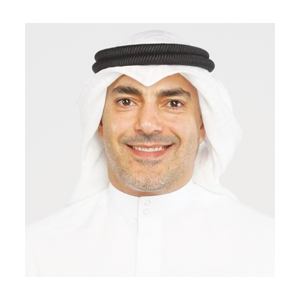
Fahad Al-Sharekh. (Supplied)
“We have a lot of potential and added value that we can bring to any asset class,” he said. “This is the reason many international investors want to come in and set up funds in the region. But it’s still in its infancy and growing, and (still) not enough.”
Al-Sharekh said that the most important building block of the infrastructure of a technology ecosystem is the human talent that makes up the workforce, which these days is likely to consist of coders, programers, software engineers and architects.
“We unfortunately don’t have this (building block) in the region (to the extent needed), because there aren’t enough schools and programs that teach coding,” he added.
“That’s the impediment, but with more attention, the next thing (governments) will do is try to expedite education initiatives in coding, which will lead to more innovation, ideation and not just mimicking.”
That being said, opportunities in the region are tremendous, with the panelists at the SALT Conference saying the surface has barely been scratched.
Tarabzouni pointed out that the gross domestic product (GDP) of the Middle East and North Africa (MENA) is $6 trillion, compared to $30 trillion for the US.
The US has 150 unicorns — a tech startup that reaches a $1 billion market value — compared with 25 in the Middle East.
“But the region only had one Careem to date, so there are (still) 24 missing unicorns that the region, from a GDP and economic-activity perspective, can absorb,” Tarabzouni said.
“It goes back to this circular argument of needing capital but also talent and open markets. Plus you need to fix fragmentation and get the MENA collective bloc to act as a single market for entrepreneurs to be able to address.”
On the upside, Tarabzouni said, changes in the GCC are happening at an incredible pace, and governments’ interest in helping spur entrepreneurial activity and talent inclusion is amazing.
“A lot of this is government-backed, but this industry is all about really long feedback cycles,” he added.
“But these companies take 10-15 years to create value, and you need patient investors, so I’m optimistic.”
The hope is that going forward, entities from the GCC’s private and public sectors will design and implement initiatives to speed up the evolution of the bloc’s entrepreneurship ecosystem.



